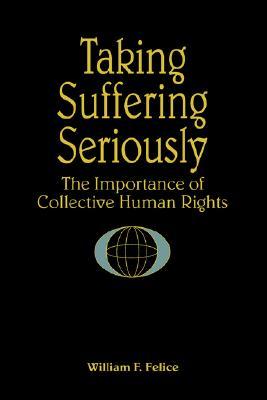The Importance of Collective Human Rights

Available from Amazon
A volume in the SUNY series in Global Conflict and Peace Education. Betty Reardon, editor. State University of New York Press
“This book is a lucid, scholarly, and provacative contribution to a developing literature on the human rights of groups, peoples, or collectivities. It is deeply researched and well-argued–the sort of book that makes a good case for all its views. Its signal contribution lies in its conjoining theoretical and empirical treatments of human rights into a coherent central argument. This is an outstanding and original treatment of an important body of material that will establish the author as a leading figure in debates within the field of human rights and international relations.” -Michael Joseph Smith, University of Virginia
Taking Suffering Seriously examines the evolution and development of the concept of collective human rights in international relations. Focusing on the tension between the rights of the individual member of society and the collective rights of certain groups, Felice argues that the protection of human dignity requires an expansion of our understanding of human rights to include those collective group rights often violated by state and global structures. He advocates a third way, between liberalism and Marxism, to move toward a world in which decision-making is based on norms of meeting basic human needs and true equality.
“This book is a significant contribution to the literature on people’s rights. Felice writes in a clear and lucid fashion. He has a mastery of the significant strands of contemporary political theory so that his elaboration and exposition of people’s rights are useful to both students and lay readers. His grasp of the global, political, economic, and cultural scene is comprehensive and sure-footed.” -Saul Mendlovitz, Co-Director, World Order Models Project, and Dag Hammarskjold Professor, Rutgers Law School
“William Felice has provided us with the clearest presentation yet available of the land-scape of human suffering. He has also sharpened the normative tools useful for acheiving collective human rights. This conceptual recasting of the human rights discourse is a coherent and hopeful way to make the difficult civilizational passage from modernity to a type of postmodernity that is reconstructive, not deconstructive.” -from the Foreward by Richard Falk
Review from Ethics and International Affairs.